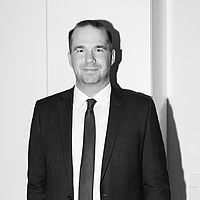With its judgment dated March 2, 2021, docket no. 2 O 131/19, the Mannheim District Court applies decisions “FRAND-Einwand” (judgment dated May 5, 2020, KZR 36/17, GRUR 2020, 961) and “FRAND-Einwand II” (judgment dated November 26, 2020, KZR 35/17, GRUR 2021, 585) of the German Federal Court of Justice (FCJ) for the first time as far as apparent. Based on the criteria laid down by the FCJ, the Mannheim District Court concludes that the Defendants in the present case were not willing to take a license, while the Plaintiff fulfilled the obligations it had in the negotiations. The Mannheim District Court bases this conclusion, inter alia, on the fact that the Defendants demanded a clause in their counter-offer under which products which include chipsets by a certain supplier and with regard to which exhaustion may, thus, potentially have occurred, are excluded from the obligation to pay license fees.
1. Facts and circumstances of the case
The decision was based on the following facts and circumstances:
The Plaintiff is the owner of patent-in-suit EP 2 627 146 which is declared essential for the LTE standard by the Plaintiff. The Defendants belong to one group and distribute and advertise LTE-enabled mobile phones in Germany and/or produce such mobile phones.
Several of the attacked embodiments have chipsets which the Defendants purchase from a certain supplier. Until December 31, 2018, a license agreement existed between said supplier and the Plaintiff.
The Plaintiff initiated license negotiations with the parent company of the Defendants regarding its LTE patent portfolio as early as in 2016 and conveyed a total of seven letters as well as a fully worded offer for a license agreement between 2016 and 2018. The parent company of the Defendants reacted to this no earlier than after the complaint had been filed in 2020. Afterwards, the parties conducted negotiations for a license agreement, during which the Plaintiff made several revised offers, explained the calculations, rendered information about existing license agreements, and presented concluded license agreements. The parent company of the Defendants made a counter-offer which included, inter alia, a clause according to which products with chipsets by the allegedly licensed supplier of the Defendants were to be excluded from the calculation of license fees. Whether or not the license of the supplier results in the exhaustion of the rights of the Plaintiff from the patent-in-suit regarding the embodiments attacked in the present proceedings was disputed between the parties. At any rate, the Plaintiff rejected said clause, but made additional alternative offers for a license agreement.
2. Decision of the Mannheim District Court
The Mannheim District Court found that the patent-in-suit was infringed and rejected the Defendants’ objections, including the FRAND objection. The following passages only intend to discuss in more detail the findings of the Mannheim District Court regarding the FRAND objection of the Defendants in more detail.
Since it was determined that the patent-in-suit is essential for the LTE standard, the Plaintiff did not question the dominant market position thus established which is why the judgment does not include any statements in this regard.
Regarding the prerequisites for the FRAND objection, the Mannheim District Court cites the case law of the European Court of Justice (Huawei v. ZTE, C-170/13) and the German Federal Court of Justice (FRAND-Einwand, FRAND-Einwand II). According to said case law, after the notification of infringement by the patent owner, the infringer has to clearly, unambiguously as well as genuinely and unconditionally declare its willingness to conclude a license agreement with the patent owner on reasonable and non-discriminatory terms and, subsequently, contribute to the negotiations for a license agreement in a purposeful manner. Vice versa, the patent owner on their part has to sufficiently endeavor to do justice to the particular responsibility entailed by their dominant market position and enable an infringer that is generally willing to take a license to conclude a license agreement on reasonable terms.
The Mannheim District Court deems the requirement of an infringement notification by the Plaintiff met at least because of a letter from the Plaintiff to the parent company of the Defendants in which the patent-in-suit was listed with its EP application number.
In contrast, the Mannheim District Court negates the Defendants’ willingness to take a license. It bases this assessment on the fact that the parent company of the Defendants made a counter-offer not compliant to FRAND rules and, apart from that, did not facilitate the license negotiations in an appropriate or swift manner either.
The Court states that the counter-offer of the Defendants particularly is not FRAND because it excludes the issue of exhaustion due to the license of the supplier - a question that was disputed between the parties and of economic relevance - and shifts this issue to subsequent negotiations and/or court proceedings. According to the Court, by demanding such a clause to be included in the license agreement, the Defendants reserve the right to not pay any license fees for end devices with chipsets by the supplier in question in order to bring up the disputed question of exhaustion again. The Court continues that, since this issue has considerable consequences for the amount of the compensation regarding the past, the clause has the effect of making it impossible to specifically quantify the Defendants’ obligation to perform.
Additionally, the Mannheim District Court finds that the Defendants’ conduct during the negotiations in other respects shows their lacking willingness to genuinely and purposefully facilitate the FRAND negotiations. For example, the Court continues, the Defendants did not sufficiently endeavor to solve the issue of exhaustion by way of negotiations, but rather saved bargaining chips for the infringement proceedings. Moreover, according to the Court, during the negotiations, the Defendants made hesitant statements, the content of which was inconsistent and lacked factual consideration of the Plaintiff’s submissions, which suggests dilatory tactics.
In contrast, the Court finds that the Plaintiff fulfilled its obligations by presenting several FRAND license agreements and sufficiently explaining them. In particular, the Court continues, the Plaintiff reacted in a flexible manner and revised its offers for the benefit of the Defendants several times during the negotiations. The Court also finds that, according to the experience the Court has and according to the license agreements concluded by the Plaintiff, the contents of the offers are FRAND.
Comments
Even though it appears that the Mannheim District Court applied the FCJ’s case law regarding the FRAND objection for the first time in the present decision, the Court’s explanations regarding the FRAND objection are hardly a different read than prior to the FCJ decisions. The reason for this is that the second Civil Chamber of the Mannheim District Court handling the present case had already assessed FRAND objections based on the willingness to take a license of infringers to a considerable degree, even before the decisions of the FCJ. In the meantime, the FCJ has confirmed this approach, i.e. the Mannheim District Court did not have any reason to fundamentally change its assessment of FRAND objections. Only the findings of the Mannheim District Court regarding the patentee’s willingness to grant a license are slightly more firm than in its previous case law; this is in line with the decisions of the FCJ, according to which both parties’ willingness to conclude a license agreement needs to be assessed in the context of a FRAND objection.
What is remarkable are the explanations the Mannheim District Court offers regarding the counter-offer of the Defendants and the included clause for excluding products, with respect to which exhaustion has allegedly already occurred. In this respect, the Mannheim District Court draws a parallel with a counter-offer which includes the determination of the license fee by the SEP owner with the possibility of a retrospective judicial review pursuant to Sec. 315 German Civil Code. Making reference to its judgment dated August 18, 2020, docket no. 2 O 34/19 (GRUR-RS 2020, 20358), the Mannheim District Court states that such a counter-offer regularly does not suffice because even such a counter-offer includes a proviso with which the infringer shifts content-related contention between the parties about the amount of the license fee to subsequent proceedings. This justification is remarkable inasmuch as, in the referenced proceedings, docket no. 6 U 130/20 (GRUR-RS 2021, 9325), with its order dated February 12, 2021, the Karlsruhe Higher District Court discontinued the enforcement proceedings, justifying it specifically stating that an infringer that made an offer for an agreement, which offer leaves the determination of the license fee to the fair discretion of the SEP owner pursuant to Sec. 315(3) German Civil Code, sufficiently expresses their willingness to conclude a license agreement which complies with FRAND rules, at least regarding the amount of the license fees, whatever such license fee might be. Against this background, it comes as a surprise that the Mannheim District Court almost identically repeats this justification without dealing with the decision of the Karlsruhe Higher District Court in this context.
It may be due to a knowledge of the criticism regarding the take of the Mannheim District Court on a counter-offer under Sec. 315 German Civil Code that the Mannheim District Court bases the Defendants’ unwillingness to take a license on additional considerations as well in the present decision. While the findings of the Mannheim District Court in this regard display a clear tendency to consider the Plaintiff’s statement correct without further findings, but question the Defendants’ statements, the decision of the Mannheim District Court to negate the willingness to conclude a license agreement of the Defendants and affirm that of the Plaintiff ultimately is understandable already based on the undisputed facts and circumstances of the case.
Lastly, what is interesting is that the Mannheim District Court alternatively explains the rejection of the Defendants’ FRAND objection based on the examination method of the European Court of Justice in the decision Huawei v. ZTE as well. It seems as if the Mannheim District Court wants to provide against the scenario in which the case law of FCJ is inconsistent with the decision of the European Court of Justice - in contrast to the FCJ’s own assessment (cf. FCJ, judgment dated November 26, 2020, docket no. KZR 35/17 - FRAND-Einwand II, GRUR 2021, 585, marginal nos. 63 et seqq.). At the time the judgment was pronounced, the Düsseldorf District Court had already referred questions in this regard to the European Court of Justice (order dated November 26, 2020, docket no. 4c O 17/19, GRUR-RS 2020, 32508), which might have been the reason for this safety net in the decision. In the meantime, however, the proceedings before the European Court of Justice have been discontinued because of a withdrawal of complaint in the main proceedings.


